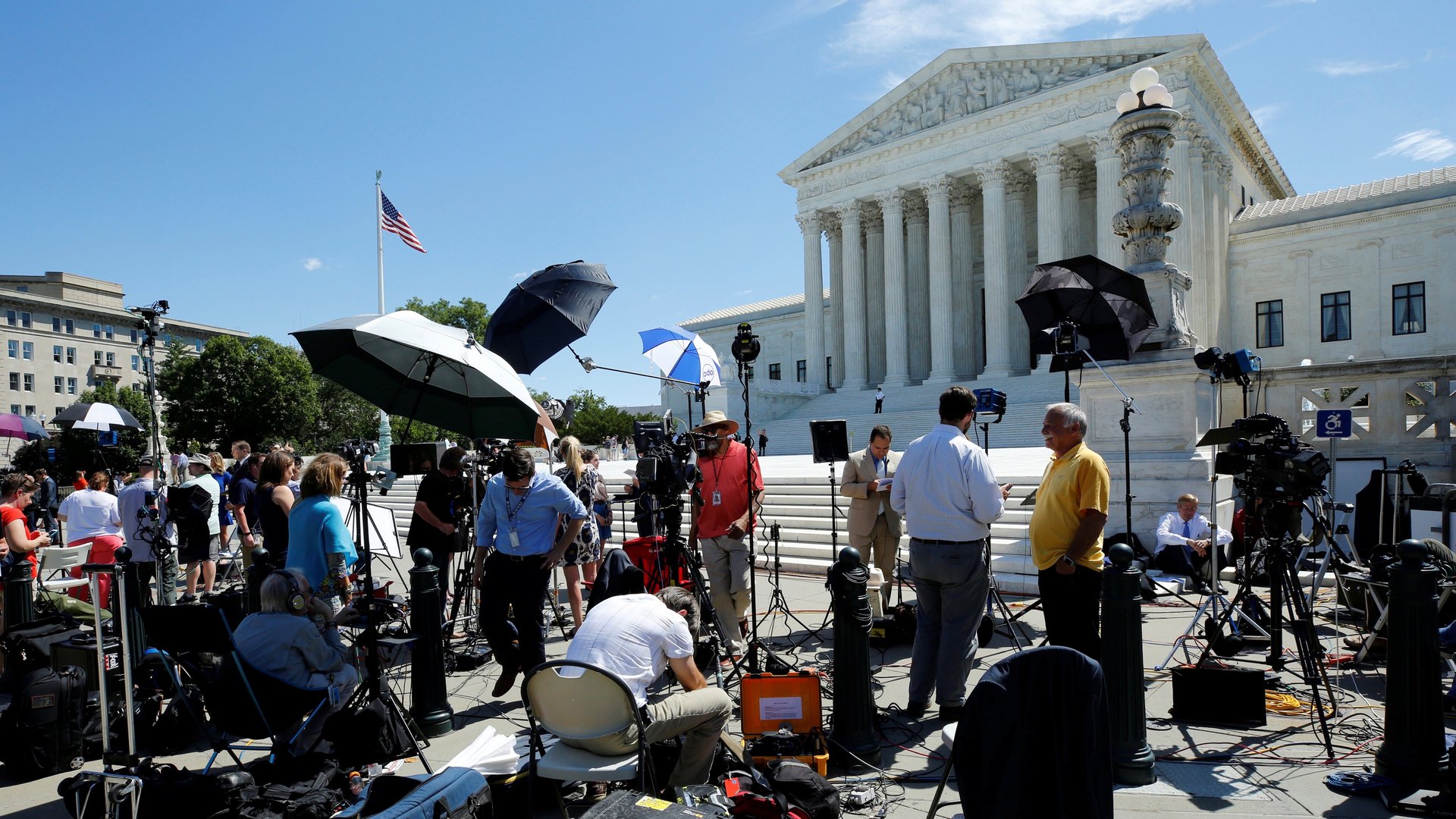The US Supreme Court just sided with religion in one of the most important church and state cases of our time
Child’s play got very serious indeed at the US Supreme Court today (June 26). The justices decided a major case about separation of church and state arising from a dispute over playground funding in Missouri—with implications for all US taxpayers.


Child’s play got very serious indeed at the US Supreme Court today (June 26). The justices decided a major case about separation of church and state arising from a dispute over playground funding in Missouri—with implications for all US taxpayers.
Chief justice John Roberts wrote the majority opinion in Trinity Luther Church v. Comer, Director of Missouri Department of Natural Resources (pdf). Six justices joined him, while justice Sonia Sotomayor dissented and was joined by justice Ruth Bader Ginsburg. The majority held that states can’t deny religious institutions eligibility for public benefits simply because they are faith based. The dissenters say this decision erodes separation of church and state.
In 2012, Trinity Lutheran Church sought a grant from the Missouri Department of Natural Resources to repave its playground with soft, recycled materials and was denied because the state constitution prohibits use of money “taken from the public treasury, directly or indirectly, in aid of any church, sect, or denomination of religion.” The church fought the decision in the lower courts, unsuccessfully, and in January 2016 was granted high-court review.
The hearing was delayed, however, and some suspect the justices were waiting for a full court press—for the appointment of a ninth justice to replace Antonin Scalia following the justice’s death. In April, Neil Gorsuch joined the Supreme Court and the case was set for hearing.
But then there was a twist. On April 13, Missouri governor Eric Greitens reversed his position on grants for religious organizations, calling the state’s prohibition a “prejudiced policy” in a statement. The Supreme Court then asked Missouri and the church whether the case was moot or whether it still mattered. Although the church could now apply for the benefit, the court found the issue at stake still called for resolution.
The majority opinion explained that the court went on with the case because it felt it needed to clarify why the state policy offends the constitutional prohibition on religious discrimination. By denying the church eligibility for funding, the state was forcing the institution to choose between receipt of a public benefit and its faith, which violates the constitution, the court stated. Roberts wrote:
The Missouri Department of Natural Resources has not subjected anyone to chains or torture on account of religion…The consequence is, in all likelihood, a few extra scraped knees. But the exclusion of Trinity Lutheran from a public benefit for which it is otherwise qualified, solely because it is a church, is odious to our Constitution all the same, and cannot stand.
Justice Sotomayor in her dissent disagreed entirely with the majority’s take on the case. She writes:
To hear the Court tell it, this is a simple case about recycling tires to resurface a playground. The stakes are higher. This case is about nothing less than the relationship between religious institutions and the civil government—that is, between church and state. The Court today profoundly changes that relationship by holding, for the first time, that the Constitution requires the government to provide public funds directly to a church. Its decision slights both our precedents and our history, and its reasoning weakens this country’s longstanding commitment to a separation of church and state beneficial to both.